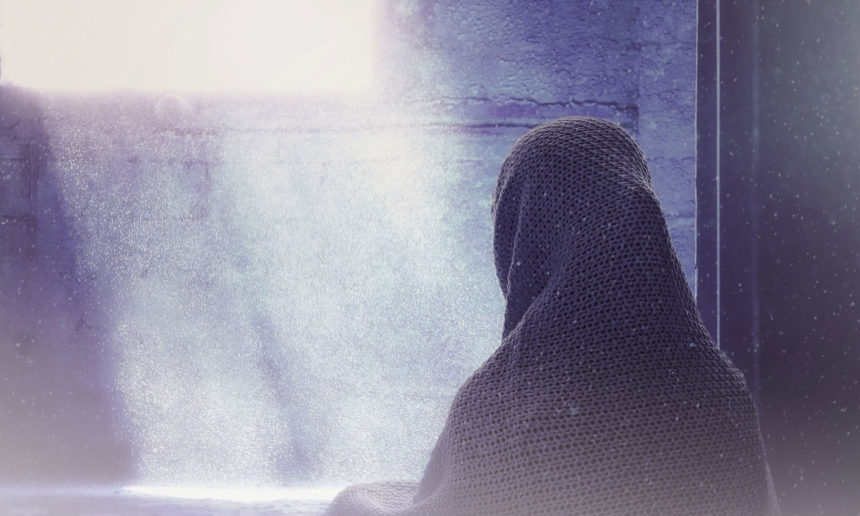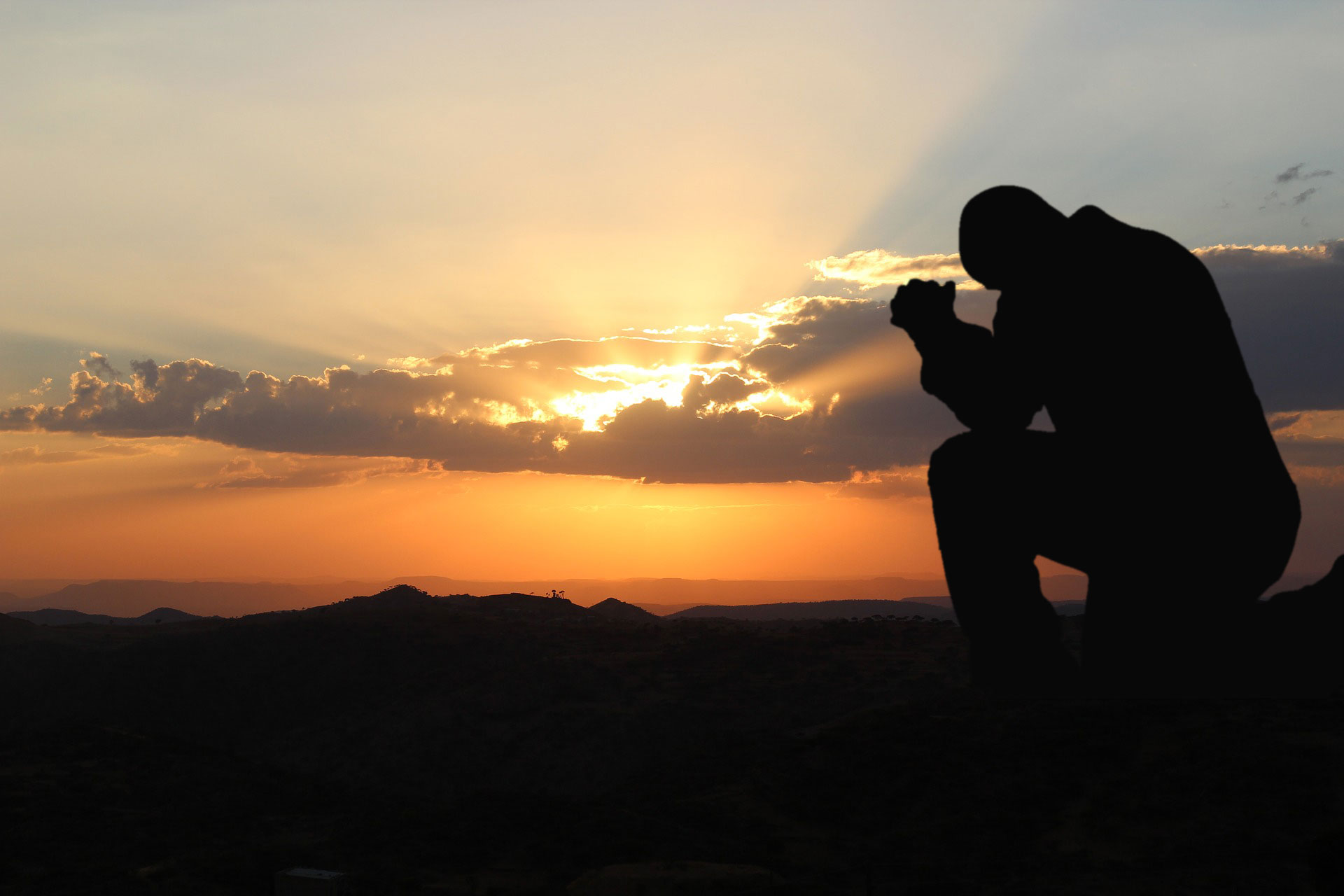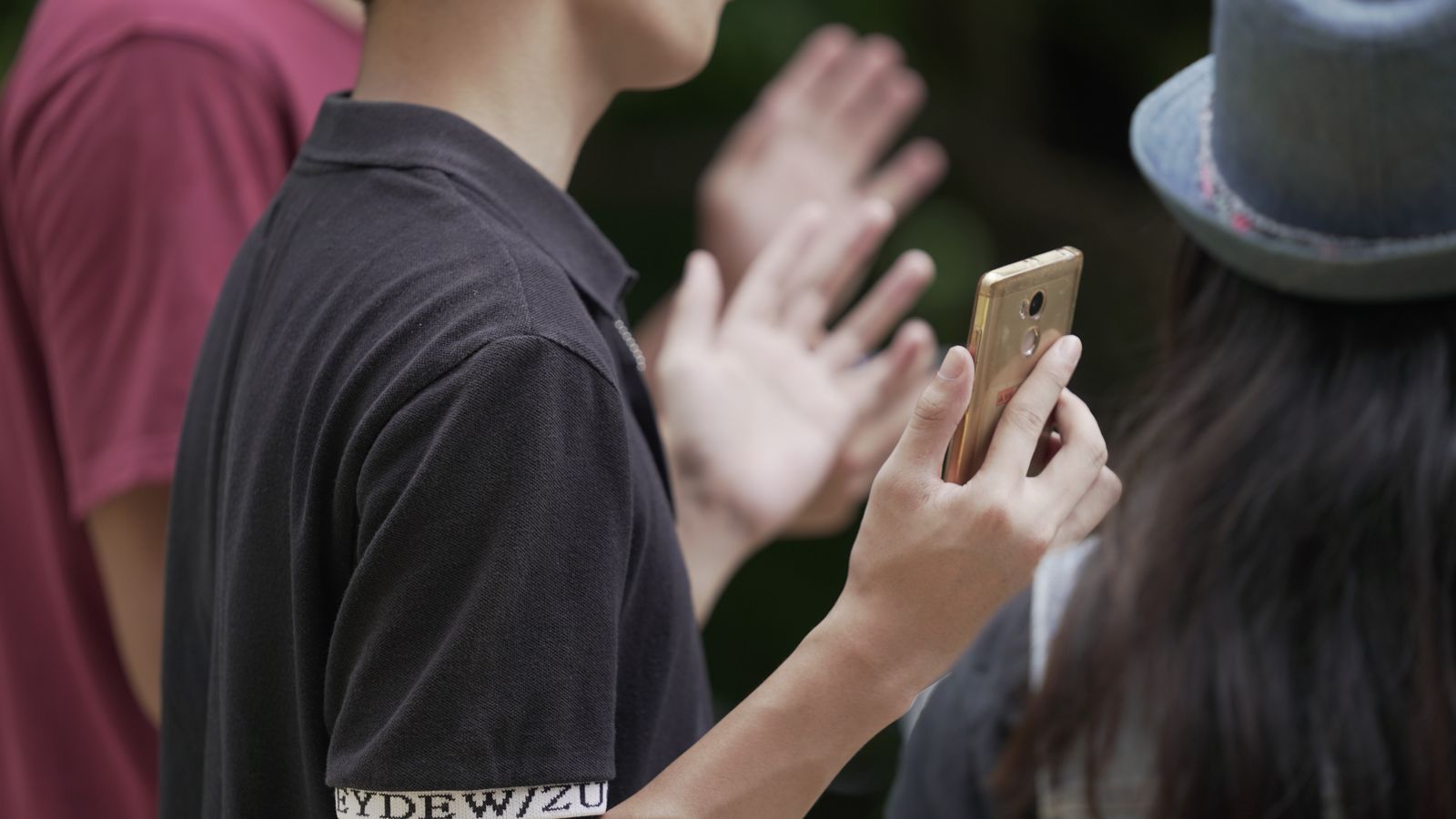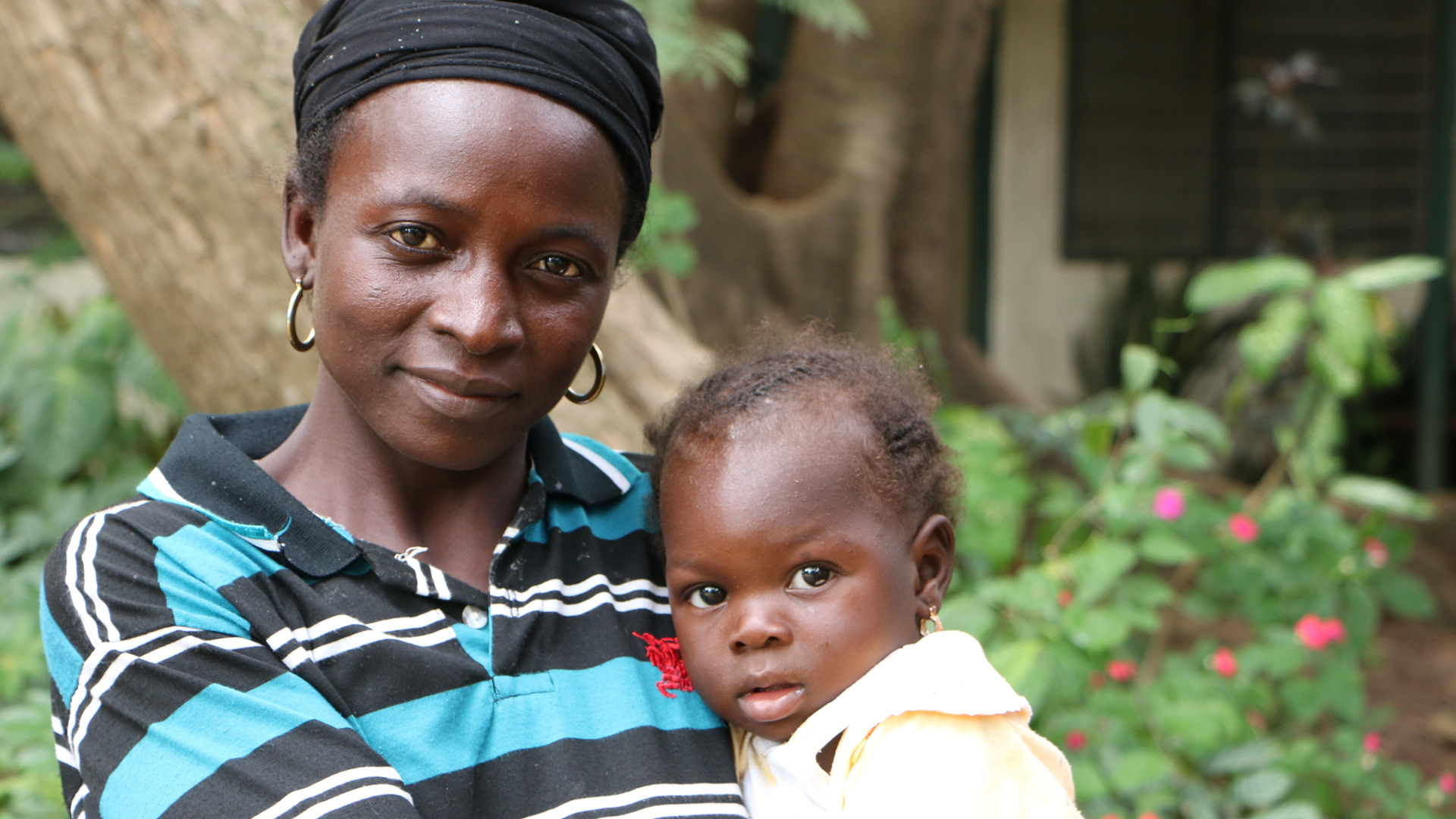Miracles in the Midst of Persecution
Fear none of those things which thou shalt suffer: behold, the devil shall cast some of you into prison, that ye may be tried; and ye shall have tribulation ten days: be thou faithful unto death, and I will give thee a crown of life.” — Revelation 2:10
November 7th is the International Day of Prayer for Persecuted Christians.
Christians in America have a lot to be thankful for. We are free to practice our faith, gather in churches, and openly enjoy fellowship. Every day we ought to be grateful to God that He so richly blesses us and meets our needs. We have our loved ones, our homes, an overabundance of food and goods, even things we take for granted such as transportation, cell phones, and opportunities to improve our lives.
We know that other Christians in the world do not have the same freedoms to worship our Lord. But it isn’t until you hear their personal stories that it begins to hit home. Do their hardships strengthen their resolve to worship God even under the threat of death? Does it make us feel uncomfortable that we may be taking our freedom to worship too lightly? Is there anything we can do to help our persecuted Christian brethren?
Here are just a few personal stories of fellow Christians who are enduring persecution in the countries where they live. Each story is brought to you by Open Doors USA. Open Doors helps tell the story of persecuted Christians, and why religious persecution is one of the most urgent issues of our time. The organization works to equip and encourage Christians living in dangerous circumstances and equips the Western church to advocate for religious freedom.
Read about:
North Korea and Hee-Yol’s Story
Eritrea and Shiden’s Story
China and Ruth Zhao’s Story
Nigeria and Afordia Inuwa’s Story
North Korea: 2020 is North Korea’s 20th year as No. 1 on the World Watch List.
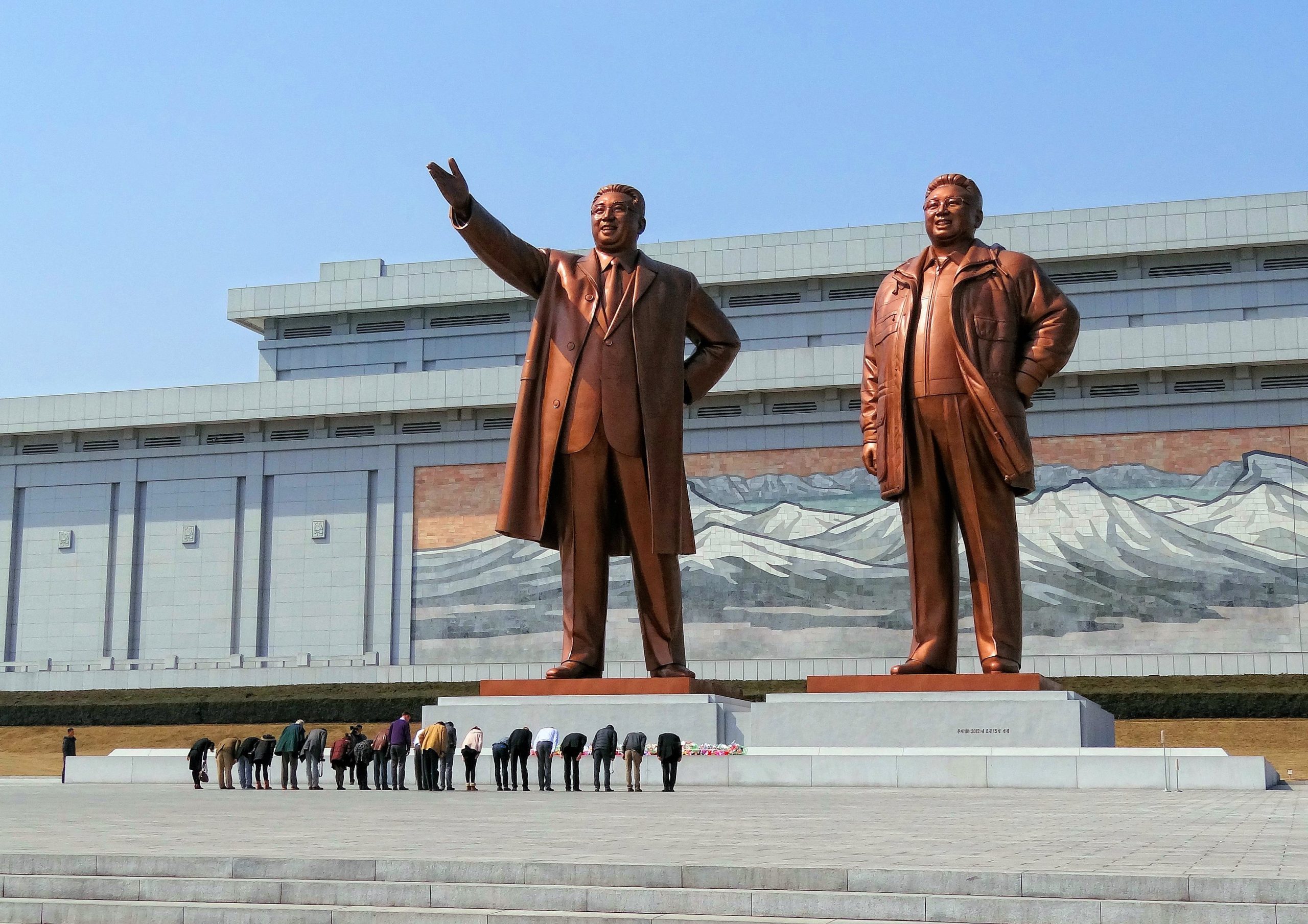
WHAT IS LIFE LIKE FOR CHRISTIANS IN NORTH KOREA?
Being discovered as a Christian is a death sentence in North Korea. If you aren’t killed instantly, you will be taken to a labor camp as a political criminal. These inhumane prisons have horrific conditions, and few believers make it out alive. Everyone in your family will share the same punishment. Kim Jong-un is reported to have expanded the system of prison camps, in which an estimated 50,000-70,000 Christians are currently imprisoned.
PRAYER POINTS
- Pray for North Korea’s secret believers, that God will continue to strengthen them, provide for their needs and keep them safe.
- Pray for the believers who are imprisoned.
- Despite the risks, we have heard stories of believers sharing the gospel with others, even in North Korean prison camps. Pray that North Korean believers will shine as lights in the darkest places on earth.
HEE-YOL’S STORY
In the 1990s, a famine devastated North Korea, so “Hee-Yol” fled to China for food and money. While there, she visited church and heard the gospel for the first time. She gave her life to Jesus.
A few years later, she was caught by Chinese police, who sent her back to North Korea. Her churchmates in China tried to help her, but they couldn’t do much. She wondered why God would let her be caught.
Hee-Yol faced a trial and was sentenced to a four-year imprisonment. “I went inside the prison cell and I cried with all my voice to God. I was blaming God before, but I started to plead to God, ‘Please save me from here!’”
The prison was worse than she expected. “About two prisoners died from starvation every day. Starvation in prison cannot be described with any words,” Hee-Yol says. “I was malnourished then. It was a hard time.” After two years, she was released.
Hee-Yol waited a few more years, and then escaped once more to China—and then eventually to South Korea. Looking back on her life, Hee-Yol says, “In the most difficult time in my life, I found God through the suffering. I consider that our present sufferings are not worthy comparing with the glory that will be revealed in us. (Romans 8:18) I praise and worship our God who will reveal Himself in suffering.”
She asks for our continuing prayers. “I ask those who have been praying for North Korea from all around the world, to pray for North Korea to be able to come to the gospel. The North Korean citizens are like slaves. With the light of the Lord, they would be freed.”
Eritrea: Known as the North Korea of East Africa
WHAT IS LIFE LIKE FOR CHRISTIANS IN ERITREA?
Christians from non-traditional denominations face the harshest persecution in Eritrea, both from the government and from the Eritrean Orthodox Church (EOC—the only Christian denomination recognized by the government). Government forces monitor phone calls and conduct countless raids that target Christians and can lead to arrest and imprisonment without trial. Many Christians are held in the country’s intricate tunnel system of inhumane prisons. Their loved ones may not know where they are or even if they’re still alive.
PRAYER POINTS
- Pray that believers’ faith would grow, that their love would increase, and that their faith would be steadfast in affliction.
- Pray for wisdom and opportunities for Eritrean Christians and church leaders to engage their government on religious freedom.
- Pray for those suffering terrible conditions in prison, held because of their faith. Ask the Lord to show His grace to these families and provide for their spiritual and physical needs.
SHIDEN’S STORY
“Shiden” became a Christian in his late teens. He knew the risks of following Christ in Eritrea. Sure enough, several years after he began following Christ, he was caught at a secret worship service and arrested. He spent more than a decade in three different prisons—all part of Eritrea’s notorious prison system.
Shiden faced exposure to severe temperatures and a lack of basic sanitation. He was regularly taunted by others, told he could end his suffering by renouncing his faith in Jesus. Shiden refused—and for that, he endured regular, extended solitary confinement in a space like a coffin.
Once, he was briefly “released” into military service, but when spies found a few sections of the Bible on him, he was sent back to solitary confinement for another three months.
Shiden was eventually sent home without any explanation. His family was delighted to have him back, but they quickly realized all was not well. After all the physical and emotional torture, Shiden was a broken man.
Shiden struggled to come to grips with the fact he had missed out on so much: education, career, marriage and fatherhood. His brother “John” and their mother feared Shiden might harm himself.
But though things feel overwhelming at times, John remains hopeful because of the progress he has seen in his brother. “God’s grace is limitless,” John says. “Although it has not been easy for him, Shiden has come so far. And these days, he often encourages me by reminding me of the story about the fathers of faith in Hebrews 11. He says, ‘I will serve the Lord until I die; I want to be a hero of the faith, too, and one day in the future claim the crown of righteousness.’”
The importance of prayer cannot be overstated. “The prayers of righteous people have availed much,” John says. “Please continue to pray for Shiden. I believe God will continue to help.”
China: China has installed more than 415 million facial recognition surveillance cameras that track people’s whereabouts.
WHAT IS LIFE LIKE FOR CHRISTIANS IN CHINA?Â
The church in China continues to enjoy strong growth; however, life for Christians is anything but straightforward. The policy of “Sinicizing” the church has been implemented nationwide, as the Communist Party limits whatever it perceives as a threat to its rule and ideology. Thousands of churches have been damaged or closed. In some parts of China, children under the age of 18 aren’t allowed to attend church—part of the country’s efforts to stunt future growth.
PRAYER POINTS
- Ask the Lord to give church leaders wisdom, discernment, and guidance as they lead congregations in light of increased restrictions and surveillance.
- Lift up in prayer all who have left their former religion to follow Jesus. Pray they will be protected from harm, strengthened in their faith, and empowered in their witness.
- Ask the Lord to open the eyes of those in authority to the unequalled power and beauty of the gospel.
RUTH ZHAO’S STORY
“Ruth Zhao” was a performer in the Chinese military’s Cultural and Performance Division. She was famous for her performances, winning awards year after year.
But recently, everything changed. Ruth’s boss told her she had to stop going to church meetings—and that she couldn’t be both a military performer and a Christian, since military personnel in China are not allowed to be Christians.
Ruth was faced with a life-changing decision: Deny her faith and keep her job, or declare her unchanging love for the Lord and risk everything. Ruth knew she could not deny Jesus. So, she quit her job.
Her resignation infuriated her boss. He punished her by stripping her of all awards and accolades, and drastically reduced her retirement benefits. Ruth lost her job, her reputation and her financial security.
She had paid the price of standing strong in her faith in Jesus in China.
Ruth is just one of the believers in China whose lives have been completely changed by the persecution against Christians. Restrictions, pressure, warnings, and sometimes surprise raids on churches—these are all part of Christian life for Chinese Christians in 2020.
Chinese churches have responded by asking Open Doors to journey with them—they want to understand the biblical foundations of persecution, and they want training and resources.
“This is awakening! Thank you so much for this great learning opportunity,” one sister shared, after attending training from Open Doors. Her husband had been imprisoned for distributing Bibles in the past, and she had experienced persecution on many occasions. “I used to experience a lot of persecution. While my life has become stable, my spirit has become less alert. It’s time for us to prepare, as persecution is escalating in different areas in China. I will pass on my learning to other brothers and sisters.”
Nigeria: More Christians are murdered for their faith in Nigeria than in any other country.
WHAT IS LIFE LIKE FOR CHRISTIANS IN NIGERIA?
Violent attacks from Islamic extremist groups (Boko Haram, Hausa-Fulani Muslim militant herdsmen, ISIS affiliate ISWAP) are common in the north and Middle Belt of Nigeria—and they’re becoming more common farther south. Militants often murder Christians or destroy their property and means of livelihood. Men and boys are particularly vulnerable to being killed. The women and children they leave behind are often displaced to informal camps, face sexual violence, and are even at risk of abduction and forced marriage.
PRAYER POINTS
- Pray for the Lord’s grace and comfort for believers who are displaced, have lost loved ones and their homes, and are struggling with trauma.
- Ask the Lord to be near to abducted believers. Pray for their release or rescue.
- Pray for President Muhammadu Buhari and his government— pray they will take decisive actions to protect all citizens.
- Pray that Open Doors partners will strengthen the church to testify and share the gospel in very difficult circumstances.
AFORDIA INUWAM’S STORY
Imagine starting your day just like any other day, getting the kids fed and dressed as they hurry off to school, dad drives off and fights the traffic to get to work, and mom dives into the day’s to do list. Everyone expects to come home and enjoy family dinner together. This plays out in many households the world over, in Christian and non-Christian homes. So it was in the far away city of Mubi, Nigeria, where Afordia Inuwam, a pastor and community health worker, and her family started a day that would end like no other.
Afordia Isaac Inuwa was born 1968 in Mubi, Adamawa State, Nigeria. Her father converted from ATR (African Traditional Religion) to become a Christian before her birth. Although she grew up in a Christian home, she became born again while at school in 1982. She married Isaac Inuwa in Mubi on May 5, 1985. The couple had five more children. Isaac was an ordained pastor and became the deputy general overseer at a church in Mubi before his death on October 29, 2014, during a Boko Haram attack.
What follows is her personal story describing her experience and recovery from the Boko Haram attack, shared in an interview with David Curry, CEO of Open Doors USA.
Curry: Violence has increased incredibly in Northern Nigeria and beyond. To understand the violence, I want to introduce you to Afordia, whose husband was killed by Boko Haram in dramatic fashion. Is the violence more intense now than it was during your father’s time?
Inuwa: Yes. It’s more intensive than in their own time.
Curry: Did you live in a Christian community or was it a community of both Muslims and Christians? What was the nature of the city or the village in which you lived?
Inuwa: I live in a community where we have both Muslim and Christians are living together. Yes.
Curry: And was it a peaceful community?
Inuwa: Before the Boko Haram, it was a bit peaceful. But now with the issue of Boko Haram, it is not as peaceful as in fact, you rely on the Muslims that they can protect you or they will live peaceful with you. You are staying together, but deep down in their heart, if any attack breaks forth, like Boko Haram attacks the community, they will join them and fight you as Christians. That is how we are staying now.
Curry: So, their loyalty will be to Boko Haram under pressure. Is that what you’re saying?
Inuwa: Yes. Yes.
Curry: In 2014, Boko Haram attacked your village, came into your city. Had Boko Haram ever attacked before?
Inuwa: No. There was no attack before. That was our first experience of the attack, that 2014.
Curry: And when did you find out that they were in the village, in the city?
Inuwa: It was just sudden. Just that morning, 2014. We do our normal work. I cooked breakfast for my children, and their father helped me to feed them in the morning. And then we get them ready for their schools, and their father took them to the school. And I was telling their father that I will go early to my place of work to screen out women for antenatal. Then I said, “I want to go to the office very early,” which he allowed me to go. And then he said his own would be 8:00. He will follow after.
Inuwa: So, that was how everything was normal. Every place was calm without any tension, without any tension, without any rumor of anything. But suddenly the thing happens around 9:00, that Boko Haram are coming into this town today. Today. So, I was busy with the women at the clinic. I don’t know what was happening. But between that period, 9:00 to 10:30, there was no communication on cell phones. That was how the network ceased. And everybody was running. It is only when you see people running, then you ask and then you start finding where are your family members? And then go and pick them and start running. That was how I was in that condition. I was busy with the women, people are running, I don’t know.
Until 11:00 in the morning, the network was back. And that was when my husband found me on cell phone and informed me that I should leave the hospital, and to run away for my life.
Curry: Does Boko Haram try to isolate the city by cutting off cellular communications and other communications to the outside world?
Inuwa: Yes. That was what happened that day. They cut off the communication around our village. Yes.
Curry: Do you remember what feeling you had when you first saw people running at 10:00, at 9:00 when you saw them begin to scatter and run through the city, what was the feeling? What did you first think was happening?
Inuwa: Yes. During the time that I went out of the hospital, it was 11:00. During that time, what I first see was all shops were closed, all people were running. And during that time, bomb blasts started. There was bomb blasts, there are gun shots all over. And most of the exit routes were blocked by the Boko Haram.
Curry: Was there panic in the street?
Inuwa: There is great panic, great fear. In fact, people were running; the cows and the people were intermingled because of the panic of the bomb blasts and the gunshots.
Curry: And how did you feel? Were you nervous?
Inuwa: Yes. Seriously nervous. I was afraid. I was scared. I had to go under people’s roof to avoid the bomb blasts, to avoid the gunshots, hiding here to try and reach my house for my children. Yeah.
Curry: When did you connect with your husband? Tell us how you connected with him. He called you at 11:00 when the system came back on, but then you found each other. And what did you decide to do?
Inuwa: He called me again. That time, the network was back again. And he said, “I’m coming home. Where are you?” I said, “I am in the house also.” He said, “Just wait for me there. I will come. You will see me shortly.” He was just close by the back of our house. And then he reached home. Immediately, we took our credentials. That is our certificates of our schools and the birth certificate of our children, and then put this inside box. We went out with the car. That is how we connected in the house.
Curry: Now let’s talk about the moments, those moments where you came upon Boko Haram. Walk us through that experience.
Inuwa: The moment I met with the Boko Haram. In fact, initially I was thinking it was the Nigerian army forces because they were fully dressed in Nigerian army forces dress. I was like, “Bless the name of the Lord. The Nigeria armed forces have come to help us.” Only that it was my husband that recognized them because when they put the uniform now, they will use another thing to tie their head. And then my husband said, “This was not Nigerian army. They are Boko Haram.” “And how did you know?” Then that was when my heart was afraid.
Curry: What did they ask you?
Inuwa: During the time, they stopped me. My husband first came out of the car, and then I followed. Then the two of us were just standing near them. There were more than… I think there were five, besides there were five. And they started asking my husband, “Are you an infidel or a Muslim?” They took Christians to be an infidel, but my husband now said, “No, I’m not an infidel. I’m a Christian. I’m neither an infidel nor a Muslim, but I’m a Christian.” That was how he answered them.
Curry: Then what happened next?
Inuwa: Yes. The next thing, they asked him to turn to the left side of the road. And immediately when he went to the left side, I was standing at that spot, but he went and then knelt down and started praying. Right from the time he came out of the car, he was praying, but I don’t know exactly what words was he talking to God about. And then he went and knelt down, finished his prayer, and then he lied down. Then they started shooting him.
Curry: He was lying down when they shot him?
Inuwa: Yes, yes.
Curry: What did you do in that moment? Did you cry out? Were you silent? What was happening to you?
Inuwa: Immediately, I first heard the first gunshot, my spirit jumped out of me. I was like a dry stick. I did not scream. I did not shout. I was just speechless, like a dry stick. I was like, “Is this thing happening to me? Is it a dream or a reality? I cannot tell.” I was just there speechless, and suddenly something tells me, “Pray to God.”
Inuwa: In the process now, they came over me and was asking me, “Are you an infidel or a Muslim?” I said, “Same as my husband is.” Something just tell me, “Close your eyes and then begin to tell God, ‘I’m going to meet you today.'” So, I closed my eyes. I was praying, “Lord, receive my spirit.” That was what I prayed on that spot.
Inuwa: Then suddenly I heard a shout, “Leave this woman alone. Leave this woman alone. Do I ask you to kill a woman? Leave her alone.” I heard their guns, a shout, “Bringing it down.” I opened my eyes and that was when they stop. They said, “Allow her to go.” The other man said, “Allow her to go.” He said, “No, we will not allow her to go. I would like to see what is in her bag.” That was when now they went into my bag and took the money that we were guarding for food and for fuel.
Curry: You were allowed to leave at some point, obviously. They had taken all of your stuff. Where did you go after you escaped?
Inuwa: I was going when they let me go now. There was one car following after. They shot the driver and then the car tumbled into the river with a lot of stones there. And he was carrying a lot of children inside the car, and then they brought the children and pack it inside my car and asked me to return back to the town.
Inuwa: “Go back to the town. We are in charge of the town. Go to the General Hospital, and then we are going to take these children there. Go back.” I now return. As I was returning, I was praying in my heart, “Please Lord, help me to escape. I don’t want to go back to the town. I want to escape.”
Curry: This is powerful. Let’s stop for a moment. You have experienced a lot of trauma.
Inuwa: Yes. In fact, during the time, that time, I was so traumatized that I was not sleeping. For a good 30 days, I was not sleeping. I was just enter into my room, and then come out in the morning.
Curry: Do you know how many Christians were killed that day in your city? Do you know how many were shot besides your husband?
Inuwa: Yes. I cannot tell the number precise, but I can count my neighbors that I knew they were killed, but a lot of dead bodies were there, but just few, like 10, of my neighbors and my friends that I knew they were killed.
Curry: And they were all Christians that were shot?
Inuwa: Yes.
Curry: When Boko Haram comes into the city, they’re looking for Christians. Is that right?
Inuwa: Yes. They were only looking for Christians. They gave the Muslims assurance that, “We are not looking for you. We are after these Christians.”
Curry: When you reflect back on your husband’s faith, what he did was so courageous, when you reflect on his faith, what have you learned from it?
Inuwa: I love so many things. He’s a man of courage and he’s a man that stand and defend the faith. In fact, I saw him as a gallant soldier of the Lord, Jesus Christ, because in the midst of that trouble, confusion, he did not miss his senses to answer any hard question. He was precise and straight to the point. And he in fact surrendered his life. If it means because of that, his faith, he surrender it to them, to that killing.
Curry: If you could speak to Americans right now, American Christians, what would you have us pray for you and also for Northern Nigeria? How can we pray for you?
Inuwa: I would like the Americans to pray for us, for God to deliver us from such cruel killings, and then for God to strengthen our faith and heal our heart from the traumas that we have gone through.
Curry: Afordia, is there specific scripture that has been meaningful to you as you’ve been processing the pain and the loss of your husband?
Inuwa: Yes, there is. In Revelation 2:19, God say he knows what we are going through. He knows our patience. He knows our work. He knows it. He knows it. He knows it. And when that scripture reflect my heart, it gives me joy because God knows what we are passing through. And in fact, it’s not as if it is a lost, but it is a way that God has designed it. And He’s there with us. Despite the fact that this is happening to us, he’s there. He knows it. It gives courage to my heart to forge ahead.
Curry: Thank you so much. We really appreciate. Your story is so powerful and it’s going to touch thousands and thousands and thousands of people. So, thank you.
Inuwa: Thank you so much.
Curry: We must remember Northern Nigeria and the Christians there, and remember to pray. Pray for peace. Pray that God gives them boldness and strengthens them as they walk this difficult road.
More Information
You can learn more about Christian persecution and find ways to help by viewing our article on the Open Doors 2021 World Watch List.Â
Romans 8:35: “Who shall separate us from the love of Christ? shall tribulation, or distress, or persecution, or famine, or nakedness, or peril, or sword?”
Romans 8:36: “As it is written, For thy sake we are killed all the day long; we are accounted as sheep for the slaughter.”
Romans 8:37: “Nay, in all these things we are more than conquerors through him that loved us.”
Romans 8:38: “For I am persuaded, that neither death, nor life, nor angels, nor principalities, nor powers, nor things present, nor things to come,”
Romans 8:39: “Nor height, nor depth, nor any other creature, shall be able to separate us from the love of God, which is in Christ Jesus our Lord.”
“Pray for Persecuted Christians” Related Articles
==> Also read “Christian Persecution 2021.”
==> And read “The Greatest Battle of Our Time.”


